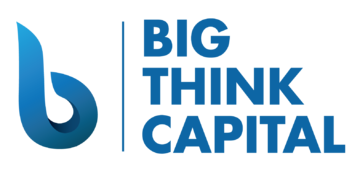
Whether your business is ready to open a new location or you need to expand production with a new facility, you’ll need to acquire real estate. And unless you’re overwhelmed with capital to spend, you’re probably going to need a loan to finance the purchase.
A commercial mortgage loan could be exactly what you need to close this gap and purchase the new property your business needs. But how exactly does a commercial mortgage loan work, and how do you get one?
What Is a Commercial Mortgage Loan?
A commercial mortgage loan is much like a conventional mortgage. You’ll apply for this mortgage by providing documents related to your business and its finances. A lender or other financial entity will review your paperwork and decide whether to move forward with a loan.
If you’re approved, you’ll receive the funds necessary to purchase the property in question. You’ll then be responsible for paying back this loan, typically in monthly installments, with an interest rate so the loan is profitable for the bank providing it.
Even if you have enough money to buy a property outright, a commercial mortgage loan could be financially advantageous to you. Taking out this type of loan gives you financial leverage, which increases your buying power significantly.
So what’s the process for securing a commercial mortgage loan?
Look at Commercial Mortgage Loan Rates
Before you get too deep into the process, take a look at commercial mortgage loan rates. Interest rates for this type of loan fluctuate over time, just like rates for conventional mortgages. It may be in your best interest to time your property purchase to take advantage of the lowest possible interest rates.
It’s also important to shop around. Different lenders have varying requirements for commercial mortgage loans, terms and conditions, and rates. These rates may also fluctuate based on your credit score and other variables.
Understand Lender Requirements for Business Property Loans
Next, understand the typical requirements lenders have before giving you a business property loan. Banks are interested in securing the value of the loan, so they need to make sure you’re capable of paying that loan back.
These are some of the most important variables they’re going to study:
- Business finances. You’ll need to provide your lender with evidence that your business is currently operational and profitable—or evidence that your business will become operational or profitable in the near future. The more consistent and bigger your revenue streams are, the better.
- Business credit score. If your business is the entity taking out the loan, your business credit score plays a major role in whether you’re approved. If your business is new, this may be a significant hurdle for you.
- Personal finances. Banks also sometimes examine the personal finances of investors or partners in the business. The better standing you’re in, the more likely you are to be approved.
- Personal credit score. By extension, banks may also review your personal credit score.
- Property utility. Lenders are also interested in knowing why you want this property and how it’s going to work for your business. They want to make sure this is a valid investment, and one that will allow the company to prosper in the near future.
- Property value. Similarly, banks need to make sure the property is worth what you’re willing to pay for it. You need to demonstrate that the property value is reasonably similar to your offer.
Prepare for the Commercial Mortgage Loan Application
After shopping around, you can start preparing for the commercial mortgage loan application process. These are some of your most important items to gather:
- Tax returns. Gather both business and personal tax returns that are relevant to this transaction.
- Financial reports. Be prepared with ample financial reports to prove the financial health of this organization.
- Bank statements. Back up your claims with bank statements from at least the past year.
- Your business plan. In some situations, lenders want to see your business plan, or at least some documentation about what you’re planning to do with your new property purchase.
- Collateral information. If you plan on pledging collateral, prepare some information on it.
- An appraisal. Have the property appraised if possible. Depending on the situation, it may make more sense to do this before or after your loan application.
You can maximize your chances of being approved with the following strategies:
- Improve your credit score(s). Start by improving your credit scores. If your business hasn’t been open very long or if you’ve yet to start it, this may be challenging. Consider increasing your personal credit scores as well.
- Prepare collateral. Is there a way you can secure this loan? You can use the property as collateral, but you might need additional collateral in some circumstances.
- Add a cosigner. Adding a cosigner to the loan can reduce risk for the bank, thus increasing your chances of being approved.
- Save a bigger down payment. Similarly, you can always save a bigger down payment for the property. This also has the added bonus of reducing your monthly payments.
Options for Your Commercial Mortgage Loan
Keep in mind that there are many entities you can research for a commercial mortgage loan.
- Conventional banks. Conventional banks and lenders are by far the most common option.
- Commercial lenders. Commercial lenders typically have higher mortgage rates, but they may also have higher approval rates and faster processing.
- The SBA. You may qualify for certain types of loans through the SBA.
- Hard money lenders. Hard money loans are short-term bridge loans secured by real property.
- P2P options. You could also find a loan through a network of peers.
Shopping for a Commercial Property Loan?
Are you in the market for a commercial property loan for your business? You can apply for a commercial mortgage in just a few minutes and get near-immediate access to your new funds once you’re approved. Get started today!








